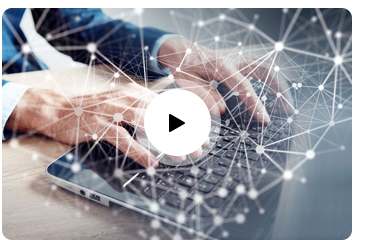Data Science Training
Data Science course online training lets you master data analysis, deploying R statistical computing, Machine Learning algorithms, K-Means Clustering, Naïve Bayes, connecting R with Hadoop framework, time-series analysis, business analytics and more. In this Data science online course and certification, you will get hands-on experience in Data Science by working on various real-life projects in domains of e-commerce, entertainment, banking, finance, etc. Get the best online Data Science course training from top data scientists.

| Jan-27th | SAT & SUN (5 WEEKS) Weekend Batch |
Timings – 08:30 PM to 11:30 PM (IST) Timings – 08:30 PM to 11:30 PM (CST) |
Register |
| Jan-27th | MON – FRI (15 DAYS) Weekend Batch |
Timings – 07:00 AM to 09:00 AM (IST) Timings – 07:00 AM to 09:00 AM (CST) |
What are the course objectives?
- Aids project teams in using Scrum effectively
- Provides expertise above that of a typical project manager
- Acts as a ‘servant leader’ and helps the team work together and learn the Scrum framework
- Protects the team from internal and external distractions
Emax’s CSM training program is a live classroom training. It is the ideal course package for every aspiring professional who wants to make a career in project management.
The CSM certification training course is focused on providing an improved understanding of Scrum methodologies and their implementation.
Why is this certification so highly sought-after?
- Certified ScrumMaster certification enhances your industry credibility and earning potential.
- According to payscale.com, a CSM professional has a median salary of $112,000 per year.
- CSM certification proves that you have a full understanding of Scrum and how to apply its principles in the workplace.
- It offers a clearly defined and well-respected credential in the Agile community, making it highly sought-after by employers.
What skills will you learn?
- Discuss Scrum and Agile methodologies
- Describe the importance of Agile
- Explain the Scrum lifecycle
- Understand the Scrum terminologies and their applications
- Discuss in detail terms such as Daily Scrum, User Story, Sprint Planning, and Sprint Review
- Understand various roles involved in Scrum
- Describe distributed Scrum and the best practices in distributed Scrum
What are the career benefits in store for you?
- Career opportunities of certified professionals are rapidly growing as they remain relevant and marketable across various industry sectors.
- Certified professionals demonstrate accomplishment of core Scrum knowledge to employers and peers.
- Certification verifies your knowledge of Scrum framework and scope of the ScrumMaster’s role in the process.
- As a CSM, you will be able to fill the roles of a Scrum Master or a Scrum team member.
- The certification helps the professional engage with a community of Scrum experts.
- Through this certification, the CSM gains access to local groups, networks, and resources available only to Scrum Alliance members.
Who should take this course?
- Members of Scrum teams such as developers, Scrum Masters, and product owners
- Managers of Scrum teams
- Teams transitioning to Scrum
- Professionals who would like to pursue a career as a professional Scrum Master
What types of projects will you complete during the CSM course?
What types of jobs require CSM certified professionals?
Instructor-led Sessions
Weekday Classes: 50 sessions of 1 hour each.
Real-life Case Studies
Assignments
Lifetime Access
24 x 7 Expert Support
Certification
SAP Trainee.
Forum
Forum
Introduction to ERP
- Overview of ERP?
- Advantages of SAP over other ERP Packages?
- Why we need ERP?
- History& Features of SAP
- Advantage of SAP over another ERP package
- Introduction to SAP & R/3 Architecture
- Induction to HANA System
- ECC to HANA changes.
- Induction to S/4 HANA and Simple Finance
- S/4 HANA Benefits.
- SAP- System-Landscape
- Induction of SAP Domains (Functional, Technical and Security)
- Overview of Remaining Modules (Fun: MM, SD, PP, HR, FM etc…,Tec: ABAP and Security: BASIS)
- Fundamentals of Business Accounts (All Debit and Credit accounting entries with Profit and Loss Statement and Balance Sheet Overview.
Induction to SAP FI/CO
- What is FI/CO
- Sub Modules in FI/CO
- Introduction to G/L, (New G/L), A/P,A/R, AA, Bank Accounting and Taxation.
- Introduction to CEA, CCA, EC,PCA, CO-PC, CO-PA.
- Concepts of integration with MM & SD
- Introduction of Month-end Closing & Year-end Closing
Enterprise Structure
- Defining Company
- Configuring Company Code
- Defining Business Area
- Maintaining Consolidation Business Area
- Defining Credit Control Area
- Defining Financial Management Area
- Define Functional Area
- Define Segment
- Assigning Company Code to Company
- Assigning Company Code to Credit Control Area
- Assigning Business Area to Consolidation Business Area
- Assigning Company Code Financial Management Area
Global Parameters
- Chart of Accounts- Types of COA
- Fiscal Year Variant- Types of Fiscal Years
- Posting period Variant
- Open and Close Posting Periods
- Multiple currencies & Exchange Rate Maintenance
- Field Status Variants& Groups
- Define posting keys
- Defining Tolerance Groups For GL & Employees
Other Aspects of Global Parameters
Classic G/L& New G/L Concepts withPCA
- Introduction to multiple Ledgers for local GAAP, IFRS & US GAAP
- Define & Activate New G/L
- Activation & Specification of Additional Ledgers
- Define Currency for Additional Ledgers
- Define Document Splitting for G/L Accounting
- Active Document Splitting
- Define Document types for Entry View
- Create G/L Accounts
- Documents in G/L-Ledger & Ledger Group , Foreign Currency , Special Periods
- Documents in G/L Park & Post , Hold, Recurring, Account Assignment Types etc,
- Reversal Document
- Foreign Currency Valuation
- Bank Interest Calculation
- G/L automatic Clearing Maintenance
- G/L Reports
- Transfer Balance & Carry Forward (BalanceSheet & P&L items)
- G/L Reports
- Finance Statement version
A/R & A/P,BANKING
- Vendor and Customer account group
- Documents types for customer and vendors
- Number Range assignment for Account group
- Reconciliation Accounts for customers and Vendor Master Data
- Customer and Vendor Master Data
- Special GL transaction
- Automatic determination of G/L Accounts for taxes,Foreign exchange(Realized and un Realized accounts)
- Terms of payment
- House banks
- Check and transfer method of payment through banks
- Payment methods
- Automatic Payment Program
- Manual&Electronic Bank Statement
- Dunning Procedure
- Down Payments,Bills of Exchange and Guarantees
- Tax Calculation Procedure
- Taxes-Service tax with GTA and Withholding taxes(TDS&TCS)
- Customer and Vendor Reports
FI-MM
- FI-MM integration (Conf. from MM to attain PO,GR and IR)
- Accounts Assignment Categories in PO and business process to be used with different Account Assignment Categories
- Valuation area, Valuation class and its importance in Material Master
- Accounting aspects from Material Master
- Material Movement Types
- OBYC and G/L Account Assignments from MM process
FI-SD
- FI-SD Automatic Accounts determination
- Revenue Reorganization Process in FI and SD Integration
- FI+MM Integration including Excise Duty, VAT,CST
- Procurement of Direct Materials
- Procurement of Indirect Materials
- Procurement of Assets
- Procurement of services
- FI+SD Integration including Excise Duty, VAT, CST
- Sale of goods including Trading Goods& Finished Goods
- Service sales
- Excise utilization
- Taxation with GST
ASSET ACCOUNTING
- Chart of Depreciation
- Define 0% tax Codes for Asset Accounting
- Asset Classes and Account determination of Asset Classes
- Depreciation Areas- Companies Act, IT ACT, IFRS&US GAAP
- Screen Layout Rules and Number Range Assignments
- Depreciation Areas for Parallel Currencies
- Group Assets
- Depreciation Keys
- Asset Master data (Main and Sub Assets)
- Overview of Revolution of Assets
- Introduction to Inflation Accounting
- Asset Acquisition (Direct and AuC)
- Running Depreciation
- Asset retirement (Scrapping, with Revenue with Customer and without Customer)
- Inter and Intra Asset Transfers
- Asset Reports/ With Different variants and Asset explorer
- Strategy on data Migration related to Assets (Legacy Assets- upload process)
- Asset procurement with MM +GL+AA Integration
Asset Sale Process with SD +GL+AA Integration
CONTROLLING (CO)
- Define controlling area
- Maintaining control areas settings
- Importance of Different Fields in controlling Area
- Assignment of Controlling area to Company Codes
- Maintaining number ranges for controlling documents
- Maintain versions
- Activate components in controlling Area
COST ELEMENT ACCOUNTING
- Primary cost and secondary cost Elements
- Cost Element categories
- Cost Element groups
Cost element report
COST CENTER ACCOUNTING
- Cost Center Hierarchy
- Cost Center Groups
- Cost Center Categories
- Cost Center Mater
- Activity Type
- Statistical Key Figures
- Reposting, Distribution and Assessment
- Activity type categories
- Planning and Budgeting of Cost Elements
- Define Planner Profile, Versions for Planner Profile
- Planning VS Budgeting of Cost centers
Cost Center Reports
Internal Orders
- Order Management in Controlling Area
- Define and Assign number ranges to Order Groups
- Types of Orders
- Model Orders
- AuC (Assets) process with Internal Order (Real)
- Investment Management Integration with Internal Orders
- Month end and final Settlements of Internal Orders
- Information System (Reports) for Internal Order
Product Costing & Material Ledger
- Configuration of product costing
- Maintain overhead cost elements
- Maintain overhead keys
- Define cost component structure
- Maintain Overhead cost Elements
- Define Costing Sheets
- Define Overhead Keys and Groups
- Define Cost Component Structure
- Variance Calculation
- Work in Progress
- Settlement
- Variance Calculation
- Work In Progress
- Settlement
- Product Cost by Sales
- Result Analysis
- Settlement
- Product Costing by Planning
- Product Costing by Order
- Product Costing by Period
- Product Costing by Sales Order with MM,SD,PP and COPA Integration
- Define and Activate Material Ledger
- Assign Currency types to Material Ledger
- Dynamic Price Change in ML
- Other Aspects of ML
- Material Costing
CO-PA
- Define Operating Concern
- Define Characteristics and Value fields
- Define Profitability Segment Characteristics
- Define Characteristic Hierarchy and Derivation
- Maintenance and Assignment of Value fields
- Transfer of Billing Documents to COPA
- Automatic Account Assignment
- Maintain PA Transfer structure for Direct FI Postings
- Information System in COPA
Classic Profit Center Accounting
- Maintain profit Center and Activation of Company Codes in profit center
- Control Parameters for Actual data
- Plan versions
- Profit Center Standard Hierarchy
- Profit Center Groups
- Transfer pricing Process with profit Center
- Maintain planner profiles
- Distribution & Assessment
- Automatic Account Assignment for Revenue Elements
Reports in Profit Center Accounting
- Preparation of Functional specs for Z reports
- LSMW
- Report Painter
- Resolving tickets with Real time scenarios
- Implementation, Support and maintenance process
- Complete Real Time Projects in ECC and S/4 HANA
Cost Object Controlling
- Overview Discreate and Repetative Manufacturing
- Product Costing
- Product cost by order (Discrete)- At Product Level
- Product cost by Period (Repetitive) with WIP
- Product cost by Period (Repetitive) without WIP
- Production against SO with Valuation (Not a Cost Object)- MTO
- Production against SO with Valuation (Cost Object)- MTO
Production against SO with Valuation – MTO
Special Scenarios
- Calculation of plan activity Prices, Primary Cost Component Split
- Scenario Based Product cost estimates- Auxilary Cost Component Split
- Overhead Key and Group
- Template Allocation
- Origin Group Usage
- Additive cost Estimate
- Mixed cost Estimate
- By Product costing
- Split Valuation
- Sub-Contracting
- Stock Transfer
- Unit Costing
- Scrap
Material Ledger
- Multiple Currencies
- Actual Cost
S/4HANA with SIMPLE FINANCE
- Activate Business Functions of HANA
- Basic Settings for company Code
- Define Chart of Accounts (With HANA Changes)
- Open and Close posting periods
- Enter Global Parameters
- Accounting Principles (All Countries GAAPs)
- Assign Accounting Principles to Ledger Group
- Define Controlling Area basic settings (With HANA Changes)
- Ledgers of S/4 HANA
- Integration of controlling with Financial accounting
- Execute Consistency Check of General Ledger Settings
- Master Records
- G/L Master creation
- Regenerate CDS Views and Field Mapping
- Display application log for Regenerate CDS view
- Postings
- Edit coding Block
- Foreign Currency Valuation
- Error Correction and Suspense Accounting
Business Partner Creation
Asset Accounting-Configure Settings
- Book Depreciation-USD- Group Valuation
- Local GAAP/Local Currency–USD- Group Valuation
- Tax Accounting/ Tax Currency–USD- Group Valuation
- Book Depreciation-GBP-Hard Currency Valuation
- Local GAAP/Local Currency-GBP- Group Valuation
- Tax Accounting/ Tax Currency-GBP- Group Valuation
- Specify Transfer of APC value
- Specify Transfer of Depreciation Terms
- Specify the Use of Parallel Currencies
- Define Asset Class
- Define Technical Clearing Account for Integrated Asset Acquisition
- Define Different Technical Clearing Account for Required Fie
- Specify Alternative Document Type for Accounts-Principle-Specif
- Define Separate Document Types by Company Code
- Define Depreciation Area for Quantity Update
- Allow Differing Variants for Depreciation Areas with G/L Int
- Valuation Methods:-
- Post Net Book Value Instead of Gain/Loss
- Activate New Asset Accounting (New Customers)
- Assign Input Tax Indicator for Non-Taxable Acquisitions
- Assign Chart of Depreciation to Company Code
- Specify Account Determination
- Create Screen Layout Rules
- Define Number range Intervals for Asset master records
Implementation Project:
- Non SAP System to SAP ECC Implementation
- ASAP Methodology
- Non SAP to HANA (Green Field Implementation)
- Activate Methodology
Project Preparation: Analysis to Client Business, based on Client Business,
have to finalize SAP Implementation timelines and Consultant Roles
Business Blue Print:
AS-IS Process: (Client Current way of doing business like NON SAP System
TO-BE Process: (Future all Functionalities in SAP System)
GAAP Analysis: Client Requirement. Not possible in SAP Standard have to Develop the program
Business Process: G/L Accounting (Book Keeping)
Accounts Payable (Vendor Transaction)
Accounts Receivable (Customer Transaction)
Asset Accounting
Bank Accounting
Taxation
Profit & Loss Statements
Balance Sheet Preparation (Assets & Liabilities)
Realization:All Client Requirement Configuration/Mapping to SAP System. Any client Requirement stand SAP Not possible Have to develop Now programme (Functional Specs Preparation)
Project Finalization: Training to Endusers / Business Users
Cutover Strategy: Upload all Data’s. Non SAP System to SAP System
Data’s: Master Data (General ledger, Vendors, Customer, Assets)
Transaction Data (Vendor Invoice, Payments, G/L Postings Like Salary, Rent Paid)
Organization Data (Company Details)
Go-LIVE………
Support Project
P1 Priority 1: Issue Resolve within 3 Hours
P2 Priority 2: Issue Resolve within 8 Hours
P3 Priority 3: Issue Resolve within 3 days
P4 Priority 3: Issue Resolve within 5 days
P5 Priority 3: Issue Resolve within 10 days
Provide 5 Genuine Real-time Tickets
Migration Project: Any new Functionality will come to have to Migrate from
Old Version to New Version
Ex: 2017 July before Taxes GST
Excise Duty CGST
Service Tax SGST
VAT IGST
CST UTGST
SHEC
HEC
Rollout Projects:
HP Company using the last 10 years SAP System.
HP is Acquired/Purchase DXC Technology
DXC using (Tally, Excel, Baan, Other ERP Software).
So DXC also Converts/ Rollout to SAP System.
DOCUMENTS
- FI/CO Soft Copy
- Regular Classes
- Business Blue Print
- AS-IS Doc
- TO-BE Doc
- GAAP Analysis Doc
- Functional Spec’s Doc
- Configuration Doc
- TR (Transport Documents)
- KDS (Key Data Structure)
- BUD (Business Understanding)
- SGD (Solution is given Doc)
- MOM (Minutes of Meeting)
- Master Data Upload Documents
- Transactional DATA Upload Documents
- Provide Genuine Support Tickets
SAP DOMAIN
Fi/Co ABAP BASIS
MM
SD
PP
FM
GM
Etc……
SAP- LANDSCAPE
Golden Client Quality Testing Production Server
all configurations Client Business
made here Day to Day Transactions

![]()

![]()

![]()
WHAT IF I MISS A CLASS?
WHAT IF I HAVE QUERIES AFTER I COMPLETE THIS COURSE?
HOW SOON AFTER SIGNING UP WOULD I GET ACCESS TO THE LEARNING CONTENT?
Post-enrolment, the LMS access will be instantly provided to you and will be available for lifetime. You will be able to access the complete set of previous class recordings, PPTs, PDFs, assignments. Moreover the access to our 24×7 support team will be granted instantly as well. You can start learning right away.
IS THE COURSE MATERIAL ACCESSIBLE TO THE STUDENTS EVEN AFTER THE COURSE TRAINING IS OVER?
- BengaluruDelhi
- Kolkata
- Chennai
- Hyderabad
- Pune
- Gurgaon
- Mumbai
- Noida
Comments are closed.




